
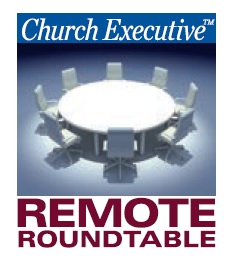 The term “smart investing” can strike fear in the hearts of clergy — but if this rings true for you, you’re in good company. Many professionals grapple with how to invest intelligently, so the results can fall short of what’s possible.
The term “smart investing” can strike fear in the hearts of clergy — but if this rings true for you, you’re in good company. Many professionals grapple with how to invest intelligently, so the results can fall short of what’s possible.
In this Remote Roundtable Discussion, church executives discuss smart investing strategies with the pros, offering their best advice whether you’re just starting out in your career, approaching retirement, or somewhere in between.
Above all, we hope it gets you excited about the possibilities.
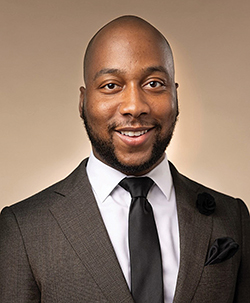
CFP®, CPA
Financial Planning Specialist
MMBB
Church executives: where are you on your retirement timeline, and when did your focus on smart investing begin?
Rev. Dr. Debora Jackson: I’m about 10 years out from retirement.
I started thinking about investing immediately after college graduation when I started my first full-time job. The company I worked for was transitioning from a pension fund to a brand-new thing called a ‘401k.’ [laughs] Through plenty of information sessions, it became very clear that if I could max out and start as early as possible, the amount of money I’d have saved come retirement would be significant.
Rev. Dr. Nathan Marsh: I’m 35, and I plan to retire when I’m 62.
I started full-time vocational ministry right after high school. I was serving two churches and started doing education online before it was popular. I completed two undergraduate degrees, three master’s degrees, and my doctorate degree through intensive studies and online studies.
My parents didn’t talk about managing or investing money, as I grew up from humble means. It really wasn’t until 2015 — when I was called as the associate executive minister for the American Baptist Churches of the Central Region, which is 216 churches in Kansas, Oklahoma and Arkansas — that I connected with MMBB. My employer was very intentional about scoping out a compensation package that included retirement.
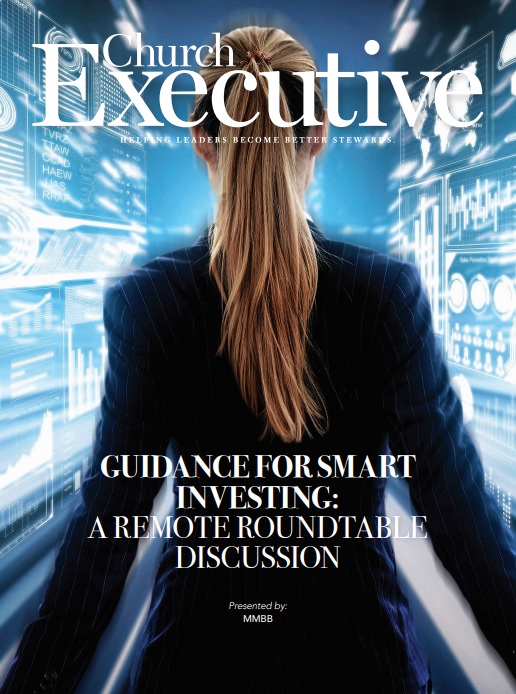
For our investing experts: when and why did you enter into the world of financial services ministry?
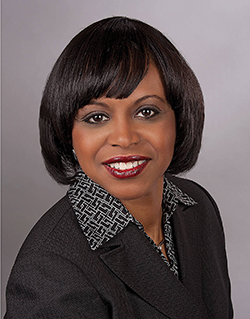
Brandon Butler: In 2014. I’ve always been good with numbers and translating that information to others. This, coupled with my desire to help others, was a perfect fit!
Alex Kim: I’ve worked in personal financial planning since 2002. Prior to that, I worked in business consulting and accounting. However, I’ve only been working in financial services dedicated specifically to ministry since 2019.
I felt my skills could make a big difference in a unique niche market of investors who have very complex financial situations and a strong need for financial planning. This group was calling out for help, and my background, experience and interests were ideally aligned.
Colin Nass: I’ve been in the financial services field for more than 30 years, the last seven with MMBB. Before that, I worked for Merrill Lynch, Deutsche Bank and Lenox Advisors. I originally began studying financial planning because I wasn’t comfortable with the advice I was getting at the time. Later, I found sharing what I was learning was very fulfilling.
Alina Parizianu: I joined MMBB in 2018 but had 14 years of experience in the financial services industry by then, both on the institutional side and on the personal side.
Before working with clergy, I helped physicians fresh out of medical school figure out the financial planning landscape for themselves; that was its own kind of ministry. It was an easy transition from assisting people who are in the ministry of health to people who are in the ministry of serving God.
For church executives that are intimidated by the topic of smart investing, what do you most want them to know?
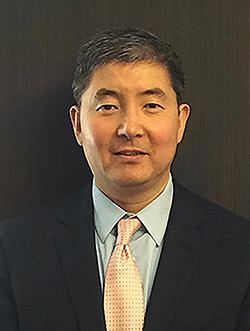
MBA, CPA
Financial Planning Specialist
MMBB
Butler: I want them to know that all experts, or “smart investors,” started off as novices at one point. It was through time, effort and discipline that they became experts — and you can, too!
If I were to summarize smart investing, I would center it on four principles: careful planning, appropriate risk appetite, diversification, and staying the course.
Kim: I’d tell them that smart investing is really about having the wisdom to recognize that you need help and the courage to ask for it. In today’s fast-moving information age, it’s impossible to know everything. So, it’s important that you know where to turn for that information — and even more critical to ask the right questions.
Parizianu: I’d tell them to invest according to their risk tolerance. This will help them stay the course when the markets are turbulent, as it is right now. That means avoiding selling low on an impulse and buying back high, or not getting back in the market at all. Staying invested is key to beating inflation, and the longer time horizon you have for your investments, the more you’ll benefit from the power of compound interest.
Nass: They should know that the most important part is deciding you’re going to engage in this space and actually starting to do something about it.
Generally, how do strategies differ depending on where a client is situated in his or her ministry career?
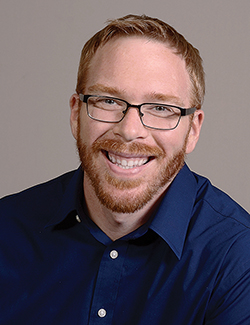
Lead Pastor
First Baptist Church
(Topeka, Kan.)
Parizianu: The younger you are when you start making contributions to your retirement, the higher your risk capacity. In other words, the younger you start, the more aggressive you can afford to be with your asset allocation.
Time is on your side when you start investing early by making contributions of 10% or 15% of your income over a period of 30 to 40 years. This lets you take advantage of the miracle of compound interest and prevents you from needing to take a lot of risk with your investments as you near retirement. Fewer ‘catch-up’ contributions will be necessary.
Nass: The goals that individuals or couples have will vary over time. Early in their careers, it’s also not unusual to have multiple, sometimes conflicting goals — like saving for retirement but at the same time paying down debt or even incurring more debt to get an advanced degree.
Short-term goals generally should be funded by more conservative, less volatile investments, whereas long-term goals could allow for more investments with greater potential for growth.
Butler: My advice can be broken down into three phases.
Younger ministers just starting out are in what I call the ‘asset accumulation’ phase, when the keys to success are limiting debt and using any excess funds to invest and gain a return.
Ministers who are mid-career would move into the conservation phase. Typically, they have accumulated a sizable amount of assets and are more concerned with conserving these assets and continued growth to retirement.
Ministers nearing retirement are usually in the distribution phase. They have accumulated the assets to feel comfortable retiring and are concerned with not running out of money and also possibly leaving some assets to their family. Here, the focus is on appropriate withdrawals and maintaining an adequate return on investments.
Kim: Generally, one’s target investment allocation mix will differ based on where he or she is in their career. That’s because, generally, their investment objectives will differ, as will their investment time horizon, their risk tolerance and their risk capacity.
Likewise, what strategies and advice are universal when it comes to smart investing, regardless of a client’s place on his or her retirement timeline?
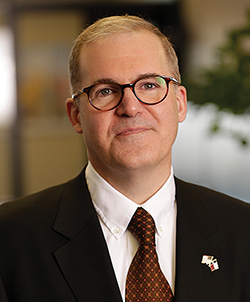
Director, Financial Planning
MMBB
Nass: I’d say that, given the compounding effect from investing long-term, the best time to start investing was yesterday.
Next is understanding that different goals will have different time horizons. Saving for a down payment on a house in one year is very different from saving for retirement in 20 years.
Finally, individuals and couples have different risk tolerance levels. If your investments are keeping you up at night, you might want to reconsider your choices.
Butler: Diversification, diversification, diversification! As the old saying goes, ‘Never put all your eggs in one basket.’ The same holds true for smart investing, no matter where you are on your retirement timeline.
Diversifying your investments helps support risk management and mitigate financial losses in a volatile market. The recent pandemic is a great example. Investors who concentrated their money into one stock or sector faced heavy losses as opposed to investors who diversified their portfolios.
Kim: Yes; having a well-diversified portfolio applies regardless of what life stage you’re in. So does the principle that ‘time in the market’ (staying invested and sticking to your goals and timeline) matters more than ‘timing the market.’
Parizianu: Right; time in the market is better than timing the market, and long-term returns can overcome short-term volatility.
I agree with Alex. Diversification of your portfolio to reduce risk is an important strategy. Have a mix of a wide variety of investments to diversify across asset classes and within classes, as well as geographically.
A lot of people assume smart investing is all about retirement. Are there other goals that church executives should be planning for?
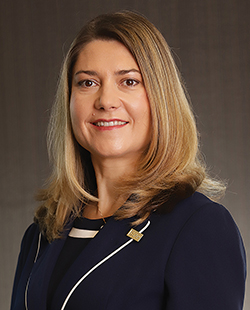
Financial Planning Specialist
MMBB
Parizianu: Many times, our church executives have conflicting goals in investing for retirement but also investing for their child or children’s 529 accounts for college and saving for a down payment on a home. We work together to prioritize these goals and assist in creating the asset allocation for each, because each will have a different timeframe and needs a different asset allocation.
Butler: Tax planning is one area that can really impact an investment portfolio if not appropriately accounted for. You don’t just want to invest; you want to invest in the most tax-efficient way.
Another often-overlooked area is estate planning. This is something no one wants to talk about but needs to. A good estate plan will make things easier for your loved ones when they’re faced with the harsh reality of getting your affairs together after you’re gone.
Kim: I agree. Church executives should work on tax planning to ensure their investments are tax-efficient. And estate planning (or legacy planning) is critical for outlining how to transfer one’s wealth to their desired loved ones in the most expedient manner.
Nass: All goals , including retirement, should be considered holistically. Think about it like a pyramid. The base is going to be things like creating an emergency fund, making sure you have the right insurance, and paying down debt. If we move up the pyramid, we get into saving for goals — not just for retirement but also saving for a child’s college education. Further up, we get into estate planning and philanthropy.
Do we start at the top? No. We start at the bottom.
For our church executives: when you first started investing, did you make any “missteps”?
Jackson: A couple. First, since I was changing jobs pretty frequently, I left 401ks stranded. It took me several years before I finally consolidated everything. I lost out on the earning potential of compounding interest.
Also, when I started my first church job, the church set me up with a brand-new 401k with a pretty conservative fund. I realize now that I was too young to be in a fund so focused on conservative investments; I should have taken more direct action and distributed my money.
Marsh: I would have started sooner. I missed out on 10 years of potential investment growth. So, partnering with a trusted financial planner from the beginning is one thing I’d do differently.
What are the best pieces of advice / practices the MMBB team has shared with you?
Marsh: One of the most influential things my financial planner has done is to help me understand how to put money where it can best grow. I was and still am a very big fan of Dave Ramsey, but not all those solutions apply to the practices of clergy, given differing tax laws. My financial planner was able to say, ‘None of those practices are bad, but let’s think about them from the angle of a clergy person.’
Jackson: When I stopped being a local church pastor to go into denominational leadership, and then started working as a university administrator, I was convinced I couldn’t contribute in the same way as I did as a pastor. MMBB helped me understand my options. I became designated as a wandering minister; in recent years, MMBB has helped me contribute to my 403(b) through MMBB as an employer, but I contribute to my company’s 401k as an employee. They’ve helped me understand the maximum amount of money that I can put away each year, which I would never have known without their counsel.
I would add that MMBB doesn’t have any financial instruments of their own. When I’m getting recommendations, there’s no motive for them to steer me one way or another.
For our investing experts: as you think about your most memorable clients, what stands out about their stories?
Parizianu: The first clients who stand out are a couple with a savings account at their local bank which is earmarked for their son’s education. They were saving infrequently, with contributions from birthday parties, grandparents, friends.
I introduced them to a 529 college savings account, which not only gave them a state tax deduction in their state but also allows them to invest the contribution in an age-based allocation for their child, or even in a more flexible investment option.
Using their contributions and an appropriate rate of return for the risk tolerance, I could estimate for them how much they would have by the time their son needed the money for college. Then, we worked together on the budget to accommodate those monthly contributions.
The second memorable client is more of a profile. In 2020, when the market crashed 20.3% in a matter of a few weeks, it created a lot of anxiety among investors, including our members. Unlike some previous crashes, the market rebounded quickly and set new records in late 2020 and early 2021. Even so, it was difficult in the early days of the crash for many investors to stay the course and avoid harmful behaviors.
I had many calls with members at that time, some as close to a few months away from retirement and one who’d even sent in the paperwork to get started. With all of them, I talked about the implications of making changes. As financial planners, the ability to put things into perspective and manage human behavior has a lot of value.
Butler: The one thing my most memorable clients share is a recognition of the value of staying the course. Even when the market is volatile or they feel their returns are lagging their peers’, they stick to the plan in place for diversification and don’t take on unhealthy risk in their portfolios.
I like to compare smart investing to running a marathon: it isn’t a sprint to get the highest return each year; it’s about slow and steady progress.
Kim: Many stories stick out in my mind, but the common threads are open-mindedness. My most memorable clients all honestly share their life stories and goals with me; are brave enough to reveal all their strengths and weaknesses; are unafraid to admit when they don’t know something; are forthright about asking questions; and are open to suggestions, even if they contradict what they have in mind.
Nass: My most memorable clients understand that smart investing is part of a larger financial wellness picture. One piece of that picture might be debt or debt reduction, but it also involves having a spending plan, creating an emergency fund, and learning how to prioritize the overall financial wellness landscape.
For our church executives: are there other MMBB investing resources that have been beneficial?
Marsh: MMBB offers webinars, videos and articles that are very helpful. The one thing I’ve always appreciated is the availability of resources, like financial planners and even people who can help out with different tax laws. There has never been a time when I’ve called MMBB and thought, “Gosh, I never got the help that I needed.”
Jackson: MMBB has provided strategies beyond 403(b)s, 401ks or Roth IRAs, and other kind of investment accounts. I very much take advantage of these recommendations.
They have also helped me understand how I can still afford to be more aggressive in my investments, being 10 years out from retirement. Related to this, they’ve helped me restructure my portfolio so that it’s appropriate with my risk tolerance and goals.
— Reporting by RaeAnn Slaybaugh


